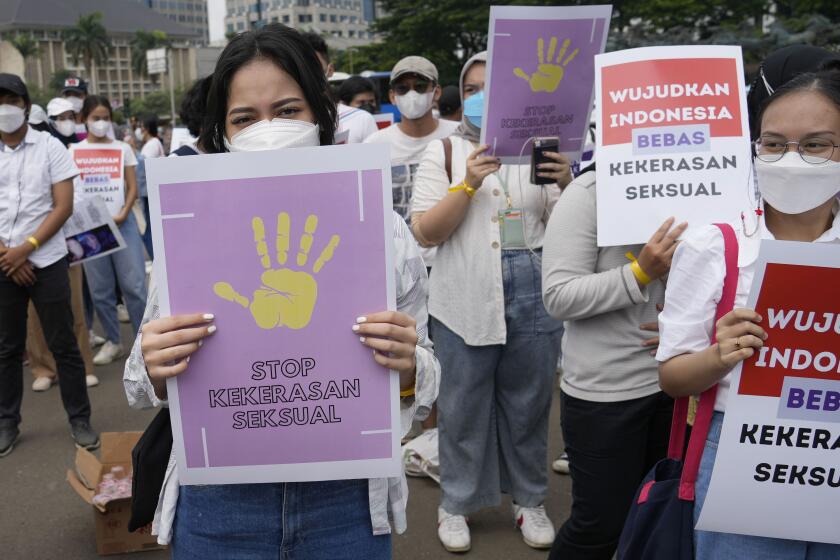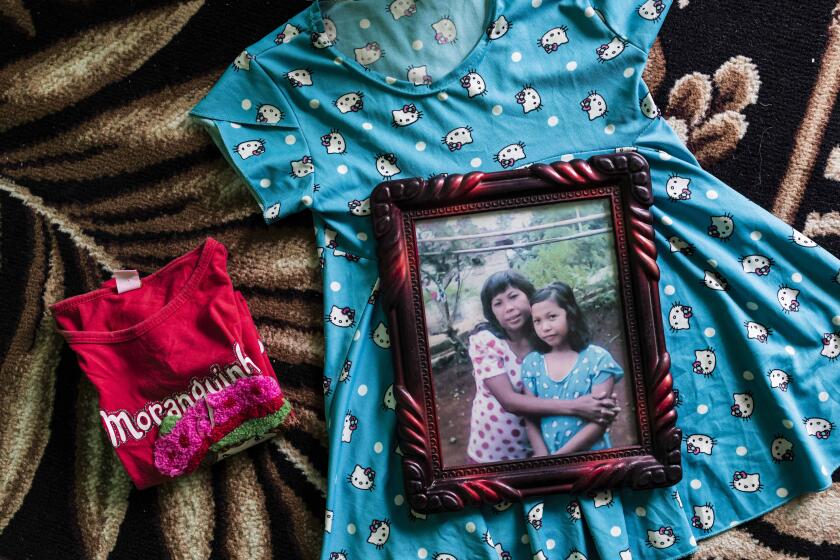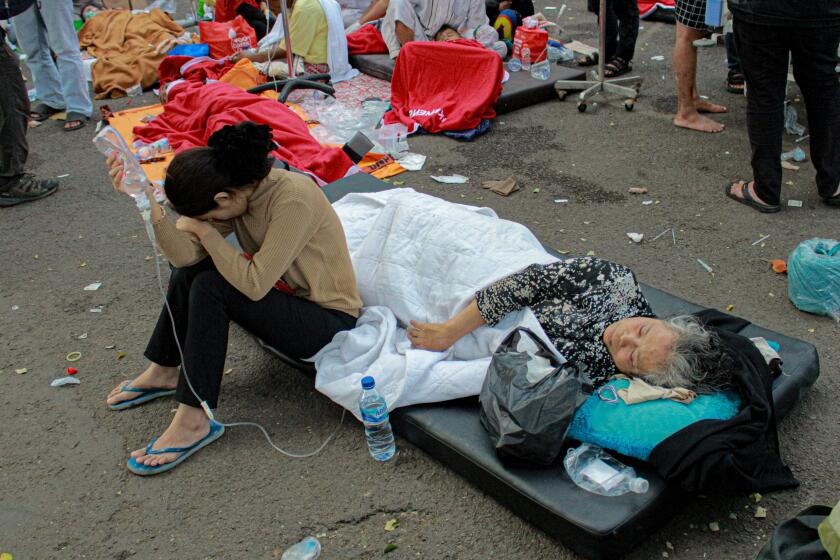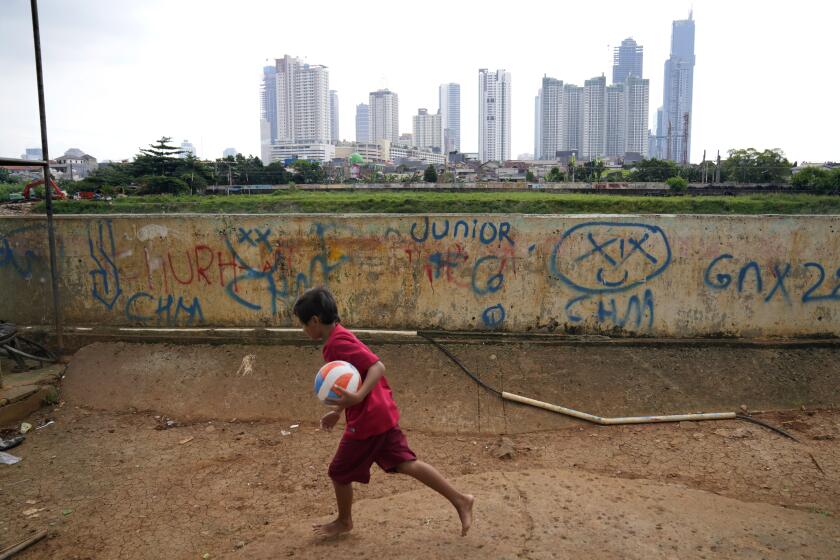Indonesian lawmakers pass a law making adultery and cohabitation a crime
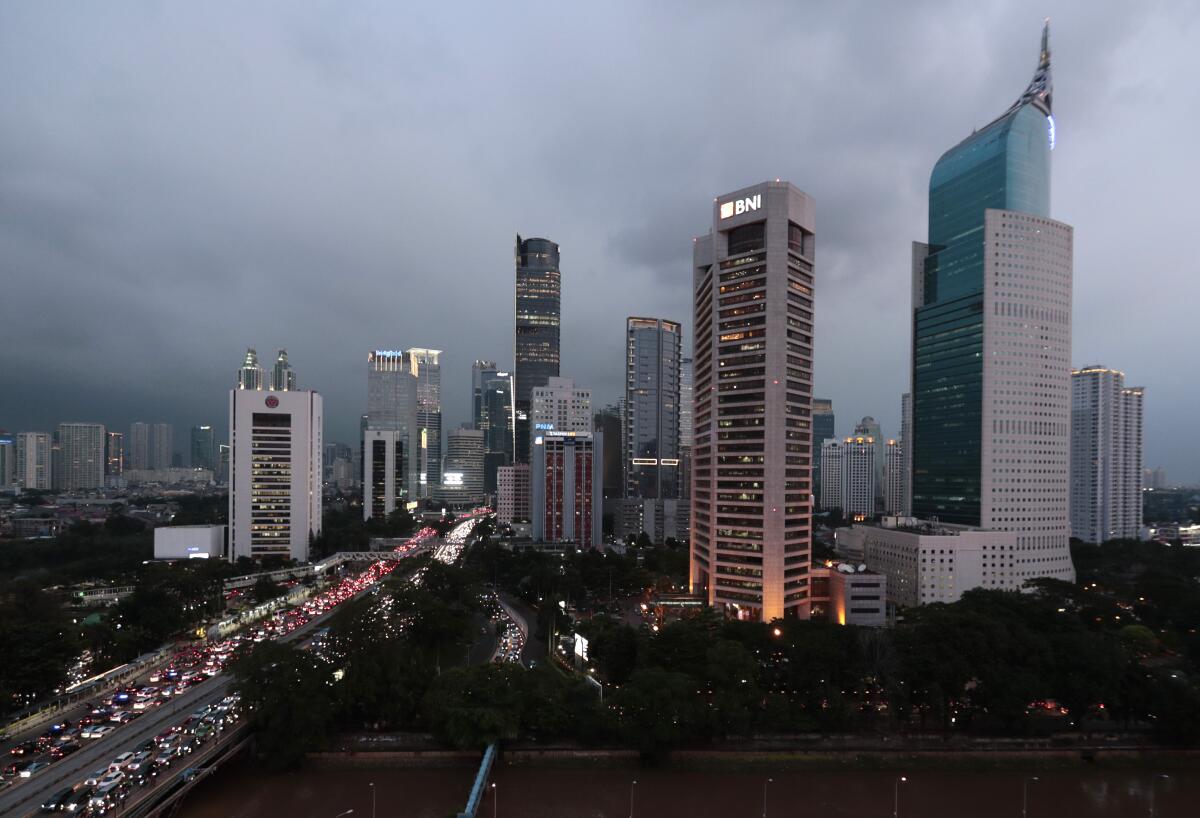
- Share via
JAKARTA, Indonesia — Indonesia’s parliament unanimously passed a long-awaited revision of the country’s penal code Tuesday that criminalizes extramarital sex for citizens as well as foreigners, prohibits promotion of contraception and bans defamation of the president and state institutions.
The amendments also expand an existing blasphemy law and maintain a five-year prison term for deviations from the central tenets of Indonesia’s six recognized religions: Islam, Protestantism, Catholicism, Hinduism, Buddhism and Confucianism.
Citizens can face a 10-year prison term for associating with organizations that follow Marxist-Leninist ideology and a four-year sentence for spreading communism.
The code maintains the previous criminalization of abortion but adds exceptions for women with life-threatening medical conditions and for rape, provided that the fetus is less than 12 weeks old, in line with what is already provided in a 2004 Medical Practice Law.
Rights groups criticized some of the revisions as overly broad or vague and warned that adding them to the code could penalize normal activities and threaten freedom of expression and privacy rights.
However, some advocates hailed the passage as a victory for the country’s LGBTQ community. During fierce deliberation, lawmakers eventually agreed to remove an article proposed by Islamic groups that would have made gay sex illegal.
Indonesia’s parliament approves new punishments for sexual violence after a recent case in which an Islamic school principal raped several students.
The revised code also preserves the death penalty, despite calls from the National Commission on Human Rights and other groups to abolish capital punishment, as dozens of other countries have done. But under the new code, a death sentence has a mandatory probationary period. If within a period of 10 years the convict behaves well, then the death penalty will be changed to 20 years’ or life imprisonment.
Under Indonesian regulations, legislation passed by the parliament becomes law after being signed by the president. But even without the president’s signature, it automatically takes effect after 30 days unless the president issues a regulation to cancel it.
President Joko Widodo is widely expected to sign the revised code in light of its extended approval process in parliament. But the law is likely to take effect gradually, over a period of up to three years, according to Deputy Minister of Law and Human Rights Edward Hiariej.
“A lot of implementing regulations must be worked out, so it’s impossible in one year,” he said.
Indonesia is facing a ‘pandemic’ of sexual violence. A law designed to protect women and children is languishing because of opposition from powerful religious conservatives.
The amended code says sex outside marriage is punishable by a year in jail and cohabitation by six months. Adultery charges must be based on police reports lodged by a spouse, parents or children.
The amendments restore a ban on insulting a sitting president or vice president, state institutions and the national ideology. Insults to a sitting president must be reported by the president and can lead to up to three years in jail.
Hiariej said the government provided “the strictest possible explanation that distinguishes between insults and criticism.”
The penal code had languished for decades while legislators in the world’s biggest Muslim-majority nation struggled with how to adapt its native culture and norms to the criminal code, a lasting legacy of the Dutch colonial administration. Indonesia, the world’s fourth-most populous nation and third-largest democracy, proclaimed independence Aug. 17, 1945.
The magnitude 5.6 temblor damaged dozens of buildings and sent residents scrambling out into the streets for safety on Java, Indonesia’s main island.
A previous revised code was poised for passage in 2019, but Widodo urged lawmakers to delay a vote amid mounting public criticism that led to nationwide protests in which tens of thousands of people participated. Opponents said that the proposed amendments contained articles that discriminated against minorities and that the legislative process lacked transparency. Widodo instructed Law and Human Rights Minister Yasonna Laoly to obtain input from various groups as lawmakers debated the articles.
A parliamentary task force finalized the new bill last month, and lawmakers unanimously approved it Tuesday in what Laoly praised as a “historic step.”
“It turns out that it is not easy for us to break away from colonial living legacy, even though this nation no longer wants to use colonial products,” Laoly said at a news conference.
“Finalizing this process demonstrates that, even 76 years after the Dutch Criminal Code was adopted as the Indonesian Criminal Code, it is never too late to produce laws on our own,” Laoly said. “The criminal code is a reflection of the civilization of a nation.”
Jakarta is congested, polluted, prone to earthquakes and rapidly sinking into the Java Sea, which is why the government is moving it to Borneo.
Human Rights Watch said Tuesday that laws penalizing criticism of public leaders are contrary to international law, and the fact that some forms of expression are considered insulting is not sufficient to justify restrictions or penalties.
“The danger of oppressive laws is not that they’ll be broadly applied. It’s that they provide avenue for selective enforcement,” said Andreas Harsono, a senior Indonesia researcher at the organization.
Many hotels, including in tourist areas such as Bali and metropolitan Jakarta, will risk losing visitors, he added.
“These laws let police extort bribes, let officials jail political foes, for instance, with the blasphemy law,” Harsono said.
More to Read
Sign up for Essential California
The most important California stories and recommendations in your inbox every morning.
You may occasionally receive promotional content from the Los Angeles Times.
